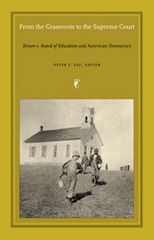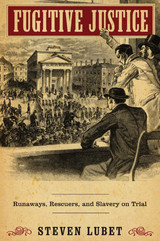Arctic Passages: Ice, Exploration, and the Battle for Power at the Top of the World
Island Press, 2025
Cloth: 978-1-64283-207-5 | eISBN: 978-1-64283-208-2 (all)
See other books on: Exploration | Geopolitics | Global Warming & Climate Change | Ice | Polar Regions
See other titles from Island Press
Cloth: 978-1-64283-207-5 | eISBN: 978-1-64283-208-2 (all)
ABOUT THIS BOOK | AUTHOR BIOGRAPHY | REVIEWS | TOC | REQUEST ACCESSIBLE FILE
ABOUT THIS BOOK
Almost two centuries after British explorer Sir John Franklin and his men died amid paralyzing cold and ice in pursuit of the mythical Northwest Passage, the Arctic—in response to temperatures greater than at any time in the last ten thousand years—is melting at an alarming pace. Instead of heeding this clear sign that the world must reduce greenhouse gas emissions to prevent runaway warming, countries such as the United States, Russia, China, and Canada are instead racing to control newly ice-free waters and the riches in the seabed below. But by choosing short-term self-interest over cooperative action, they may be condemning the world to an uninhabitable future.
Uniquely among books on climate change and the Arctic, Arctic Passages ties together past, present, and future, showing how historical fancies of a navigable Arctic are becoming future realities. In fast-paced storytelling packed with surprising revelations, journalist Kieran Mulvaney argues that today’s emerging geopolitical rivalries have roots in earlier waves of exploration and that the future prospect of a developed Arctic, with navigable passages to equal the Suez and Panama Canals, is drowning out the real impacts of warming on Arctic peoples, wildlife, and ecosystems. Mulvaney reminds us that while we go about our lives, climate change is unspooling slowly but insidiously, spawning extreme weather events that will be increasingly difficult to ignore. He asks: if governments shrug their shoulders at the five-alarm fire at the top of the world, what is the likelihood they’ll respond to the emerging climate crises across the rest of the planet?
Arctic Passages speaks to those fascinated by the potent intertwining of environmental and geopolitical issues. Ultimately, the fate of the Arctic will not be decided in the Arctic, but by the rest of the world and how it decides to take action—if it’s not too late.
Uniquely among books on climate change and the Arctic, Arctic Passages ties together past, present, and future, showing how historical fancies of a navigable Arctic are becoming future realities. In fast-paced storytelling packed with surprising revelations, journalist Kieran Mulvaney argues that today’s emerging geopolitical rivalries have roots in earlier waves of exploration and that the future prospect of a developed Arctic, with navigable passages to equal the Suez and Panama Canals, is drowning out the real impacts of warming on Arctic peoples, wildlife, and ecosystems. Mulvaney reminds us that while we go about our lives, climate change is unspooling slowly but insidiously, spawning extreme weather events that will be increasingly difficult to ignore. He asks: if governments shrug their shoulders at the five-alarm fire at the top of the world, what is the likelihood they’ll respond to the emerging climate crises across the rest of the planet?
Arctic Passages speaks to those fascinated by the potent intertwining of environmental and geopolitical issues. Ultimately, the fate of the Arctic will not be decided in the Arctic, but by the rest of the world and how it decides to take action—if it’s not too late.
See other books on: Exploration | Geopolitics | Global Warming & Climate Change | Ice | Polar Regions
See other titles from Island Press












